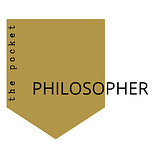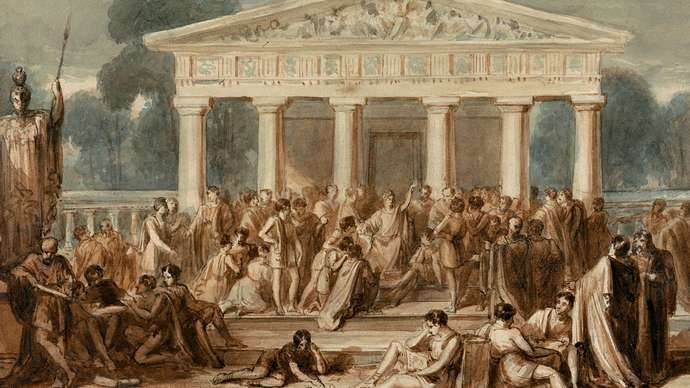Good morning philosophers,
Today we are going to study the work and life Hypatia—often regarded as the world’s first woman philosopher to have her work recorded and preserved, and the earliest ancestor of the feminist philosophical tradition.
Her father, Theon (I checked, not Theon Greyjoy) was a slightly less famous philosopher, astronomer, and mathematician that helped to carve a space for their family.
What’s most interesting about Hypatia, in my opinion, was the time-period through which she lived.
She and Theon were from the ancient city of Alexandria, in Egypt. She lived about 600 years after it was conquered and re-established by Alexander the Great inheriting the name which it bears to this day.
This city would become an epicenter of learning, intellect, and academic prowess. About 100 years after its founding, the famous Library of Alexandria was established which would cultivate a famous subculture of intellectual giants and learning.
And about 100 years after the Library came Theon and then Hypatia.
They lived through the final years of the Roman Empire, witnessed the emergence of a new order, and observed the establishment of the Holy Roman Empire in the West, and the Byzantine Orthodox Empire in the East which encompassed their city, Alexandria.
In the midst of this spiritual, intellectual, and imperial tumult Hypatia carved a path for herself doing some of the most important work of her time in mathematics, philosophy, and astronomy.
In no uncertain terms, she was
in her time, the world’s leading mathematician and astronomer, the only woman for whom such claim can be made. She was also a popular teacher and lecturer on philosophical topics of a less-specialist nature, attracting many loyal students and large audiences. (britannica, Hypatia)
Sadly, this dynamic would upset the burgeoning tension between the young christian empire and everyone else—labeled as pagan. Hypatia became a well known lecturer to the christians who saw her as a pagan teacher and leader.
If you were here when we learned about the Problem of the One and the Many earlier this year, you remember how fundamental this mathematic and philosophical problem was to early philosophy. It isn’t a Diest problem by any means, but rather one of geometry and identity.
However, this problem set was perceived as a threat by stringent and often militant adherents to monotheistic christianity. Hypatia had established herself as an authority in this problem set, and therefore a heretic and pagan.
While Hypatia and her works managed to avoid some of the earliest intolerance during this tumultuous era, in 415 she found herself the victim of patriarchal and imperial fear and she was murdered by christian zealots.
Her life was an emblematic archetype for future women philosophers and future feminist leaders. She was not just a great feminist leader or woman philosopher, she was simply the greatest of her time—period.
Friends, I hope you’v enjoyed this overview and often overlooked story, and look forward to seeing you tomorrow.
Don’t forget, on Thursday we’ll be opening up a thread to hear from you about your philosophy, tradition, faith, or worldview!
Matt
References:
https://www.britannica.com/biography/Hypatia
https://www.britannica.com/biography/Theon
https://en.wikipedia.org/wiki/Timeline_of_Alexandria
















Share this post